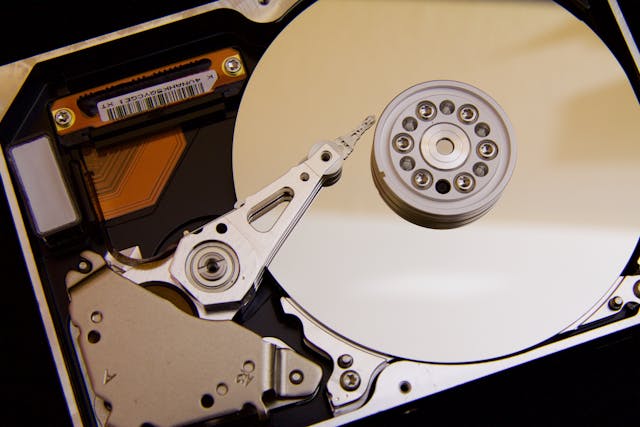Are Local External Disk Backups Safe?
In the age of digital data, local external disk backups have been a go-to solution. But are they truly safe? In this post, we delve into their limitations and present the real-life consequences of relying solely on local external disks for data storage.
Written by human for humans
A backup is a copy of a file or other item of data made in case the original is lost or damaged. Today we live in a digital world where data security is crucial, on both personal and professional fronts, and backups are an effective first line of defense. Backups allow us to recover deleted files, defend against file corruption, and restore lost data in the event of a system failure. Whether you are an individual user, a freelancer, the owner of a small business or a CTO overseeing global operations, the prospect of losing any data to unforeseen circumstances is unfortunately an ominous reality.

There are a few options to mitigate such risks and local external disks are a popular one, after all, they’ve been around for decades and we are accustomed to using them. They offer a convenient solution, enabling users to store large volumes of data on a device directly connected to their computers. With their increasing affordability, compactness, and portability, local external disks have become good companions in our daily digital endeavours. But are they truly safe? Find out in the next paragraphs.
1. Drawbacks of using local external disk backups
As technology advances, certain practices that were once reliable may begin to show their limitations. In the next paragraphs, we explore the drawbacks associated with local external disk backups.
Physical Vulnerability: Despite their convenience, local external disks are physical devices prone to damage, loss, or theft. Users bear sole responsibility for their protection, a task often neglected during the hustle of daily life that can lead to catastrophic outcomes. With their physical vulnerability, it is not smart to use local external disks as the only option for backing up your data since it can result in the loss of both the original data if saved only on a local external disk and the backup.
Limited Accessibility: While suitable for individual users, local external disks create barriers to seamless connectivity and remote access, impeding collaborative efforts. While local external disks offer a level of control over data access when in physical possession of the owner, you cannot access the backed-up data remotely. There are alternative options for data storage and data backup that do not hinder data accessibility, for example, cloud storage.
Challenges in Data Sharing: Sharing files using local external disks often involves manual processes. You may need to copy files to the disk, eject it, transport it, and then have the recipient manually copy the files to their system. This manual handling increases the likelihood of errors and delays. Dealing with sharing large files such as high-resolution images, for example, when you are trying to share your travel photos or lengthy videos complicates matters when using local external disks. Transferring huge data from external disks to a computer to be able to share them makes an already tedious process worse. When managing and sharing sizable files, this inefficiency becomes particularly frustrating.

Version Control: Maintaining optimized backup version control is vital to preventing data clutter and ensuring efficient storage usage. However, with local external disks, this process is done manually and the responsibility for it falls solely on the user, potentially leading to data mismanagement.
Security Concerns: Similar to laptops, smartphones or cameras, local external disks are attractive targets for theft. Moreover, their susceptibility to malware can compromise data integrity in case of ransomware attacks, causing significant data security risks. There is also always a possibility of accidentally losing our data due to a human error or accidental deletion.
Limited Scalability: In an era of exponential data growth, the limited storage capacity of physical devices means having to work with different devices for the same purpose, keeping them updated and properly organized. It also means you'll need to invest in additional disks when you run out of space for your backups.
2. Real-world consequences of relying solely on local external disk backup
Consider the following scenarios illustrating the real-world repercussions of relying solely on local external disk backups.

Joe and Jane are tasked with rebranding the agency's most crucial client. Joe is the graphic designer and Jane is the project manager. Eager to share two weeks' worth of progress, Joe suggests a meeting at a nearby café. Following the meeting's success and mutual congratulations, Joe briefly steps away to the bathroom. Meanwhile, Jane tends to some emails on her phone. Upon Joe's return and a brief exchange about their families, they decide to part. However, Joe's joy turns to panic as he discovers his backpack missing, containing his laptop, headphones, local external disk holding all his work, and the photos of his son's first two years of life - lost forever.
Martha, a freelance nature photographer, has been in Torres del Paine in Chile for over a week capturing images of puma cubs. While at her hostel, she receives an email from her friend Marcus about a prestigious nature photo contest sponsored by the Canadian government and The Smithsonian magazine. He offers his help with the registration as unfortunately the deadline to register is in two hours. All of Martha’s pictures are stored on a local external disk, therefore her success in applying is hindered by both the file size and poor internet connection. Martha misses the opportunity to enter her work, losing the chance for international recognition and a huge monetary prize.

Norman, the proud owner of the city's premier vegan restaurant has enjoyed smooth sailing since its grand opening last summer. However, as tax season rolls around, he faces a daunting task - filing his income tax return. All the restaurant's financial records are meticulously stored in his computer, with a backup on a local external disk for added security. Norman appreciates the convenience of portability and offline accessibility offered by this setup. However, disaster strikes when he attempts to access the data and encounters a fatal error, resulting in the loss of all information on both devices. Frustration boils over as Norman lashes out at the computer, only until he remembers that his 12-year-old son, Billy, had borrowed the external disk to print a school project just days prior. Unbeknown to Norman, malware lurking in the computers Billy used has erased all of Norman's vital data, potentially putting him at odds with the tax agency.
These and other real-life cases are a good reason to think about following the 3-2-1 backup rule.
3. What is a safer alternative to local external disks?
All in all, backups to local external disks serve as a crucial first line of defence in addressing the evolving complexities of data management and data security. However, a more comprehensive approach is essential to steer through the intricate landscape of modern data challenges effectively. By adopting a diversified data strategy including proactive measures in data handling such as encryption, redundancy, and automated backups, users and organizations can strengthen their data security and reduce the risks of cyber attacks, hardware failures, human error and other potential threats.

Cloud storage is nowadays a cornerstone of data protection strategies. It enables unmatched flexibility and productivity for users accessing data from any location. With features such as versioning and options of scalability, cloud storage empowers organizations to streamline data management processes while safeguarding against data loss or data corruption. While encryption, two-factor authentication and threat detection by the cloud storage providers ensure higher standards of data security compared to other data storage options.
In conclusion - while local external disk backups have traditionally served as a viable storage solution, their limitations are increasingly apparent in today's dynamic digital landscape. The need for a more robust and versatile alternative is evident from their susceptibility to physical damage, security vulnerabilities, and scalability constraints. Cloud storage presents a compelling solution to those issues, providing enhanced flexibility, accessibility, and scalability, alongside advanced security features.
At Koofr, we offer a secure and reliable cloud storage platform tailored to meet your data management needs. Our commitment to privacy, scalability, and comprehensive security measures ensure that your data remains protected throughout its lifecycle.
Never underestimate the value of robust data security and keep exploring all of the options to create your ultimate data security strategy. .
Do you use local external disks as part of your data storage strategy? Join us on the Koofr subreddit and discuss its alternatives!


